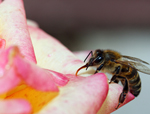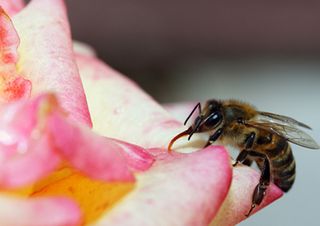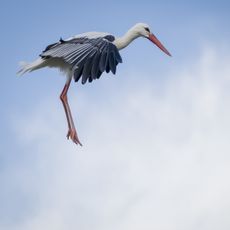Bee wars: Defra defends decision
The cancellation of proposed ban of pesticides which some think cause damage to bee populations has


Battle lines are being drawn after an attempt to scrap a controversial class of pesticides blamed for bee deaths fell flat. The European Commission proposed banning the use of neonicotinoids on crops such as oilseed rape, sunflower and maize after a report from the European Food Safety Authority (EFSA) suggested they put bees at risk. However, a small majority of member states voted against it, with Britain abstaining.
The result has sparked fury in some quarters-Defra's website was inundated by some 80,000 ‘bee-mails' from a global campaign-but the Secretary of State Owen Paterson says he will not be rushed on a decision. ‘Bee health is extremely important, but decisions must be based on sound scientific evidence, and rushing this through could have serious unintended consequences both for bees and for food production,' says a spokesman. ‘We are not opposing the EC's proposals.

* Subscribe to Country Life and save; Subscribe on Ipad
We are finalising studies that will give us the evidence on which to base a proper decision, but bas we do not have the evidence yet, it is impossible for us to vote either way.' Dr David Aston, chairman of the British Beekeepers' Association, says his organisation ‘has yet to see any evidence of harm being caused by the insecticides to honeybees in the UK', and neonicotinoids manufacturer Bayer CropScience's Dr Julian Little maintains the real threat is the varroa mite. However, the Soil Association describes the vote as ‘a terrible day for bees', and the Bumblebee Conservation Trust says it remains ‘exceedingly concerned'. The EC is to appeal against the decision.
* Follow Country Life magazine on Twitter
Sign up for the Country Life Newsletter
Exquisite houses, the beauty of Nature, and how to get the most from your life, straight to your inbox.
Country Life is unlike any other magazine: the only glossy weekly on the newsstand and the only magazine that has been guest-edited by HRH The King not once, but twice. It is a celebration of modern rural life and all its diverse joys and pleasures — that was first published in Queen Victoria's Diamond Jubilee year. Our eclectic mixture of witty and informative content — from the most up-to-date property news and commentary and a coveted glimpse inside some of the UK's best houses and gardens, to gardening, the arts and interior design, written by experts in their field — still cannot be found in print or online, anywhere else.
-
 A well-connected rural playground with 23 acres on the edge of the South Downs National Park
A well-connected rural playground with 23 acres on the edge of the South Downs National ParkOld House Farm is an impressive family home with a wealth of amenities that would inspire any rural passion.
By Arabella Youens Published
-
 The UK gets its first ‘European stork village’ — and it's in West Sussex
The UK gets its first ‘European stork village’ — and it's in West SussexAlthough the mortality rate among white storks can be up to 90%, the future looks rosy for breeding pairs in southern England.
By Rosie Paterson Published
